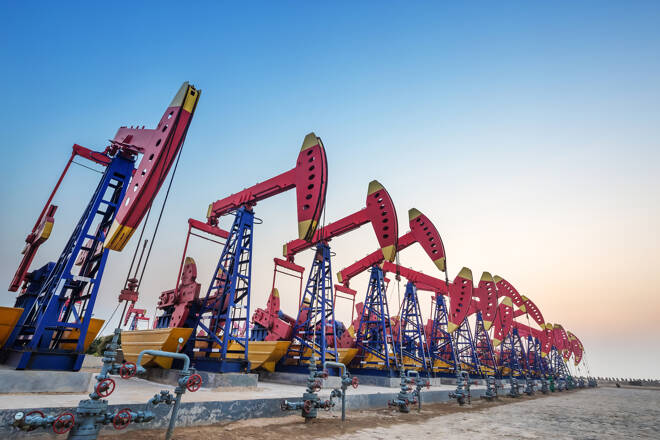Advertisement
Advertisement
Russian Oil Price Cap May Be Higher Than Expected
By:
Western countries are finalizing the details of the price cap scheme.
Key Insights
- WSJ reports that the Russian oil price cap may be set as high as $70.
- Chinese buyers are waiting for the details of the oil price cap scheme.
- Some oil traders are ready to bet that OPEC+ will cut production at the next meeting.
The Russian Oil Price Cap May Be Set At $60 – $70
Tomorrow, G7 countries are expected to announce the Russian oil price cap. Previously, the market consensus was that G7 will set the price cap in the $60 – $65 range.
Interestingly, the recent WSJ report suggests that the price cap may be set as high as $70, which would be a major surprise for the market.
Currently, Russian oil is sold at a significant discount to Brent oil due to sanctions. According to Neste, this discount has been growing in recent days and currently stands at $25.6.
Brent oil is trading near the $90 level, so Russian oil is selling for about $65, in line with the potential price cap.
According to recent reports, China has paused some purchases of Russian oil in order to wait for the details of the price cap scheme. Most likely, China is trying to evaluate whether the price cap mechanism will provide it with an additional advantage in negotiations with the Russian producers.
OPEC+ May Cut Production At The Next Meeting
Yesterday, WTI oil dived towards the $75.50 level as traders reacted to the report about a potential production increase at the next OPEC+ meeting. According to WSJ, Saudi Arabia was discussing an output increase ahead of the Russian oil price cap.
This report was quickly refuted by Saudi Arabia. Later, other OPEC members denied the report. In addition, Saudi Arabia noted that it might cut production if necessary.
Traders are trying to evaluate whether Russian oil exports will take a strong hit after December 5, when the price cap mechanism is expected to start working.
Meanwhile, traders must monitor the situation in China, which is trying to contain another wave of coronavirus. This wave may have a material negative impact on demand for oil. Most likely, oil markets will remain nervous in the upcoming days.
For a look at all of today’s economic events, check out our economic calendar.
About the Author
Vladimir Zernovauthor
Vladimir is an independent trader, with over 18 years of experience in the financial markets. His expertise spans a wide range of instruments like stocks, futures, forex, indices, and commodities, forecasting both long-term and short-term market movements.
Advertisement
